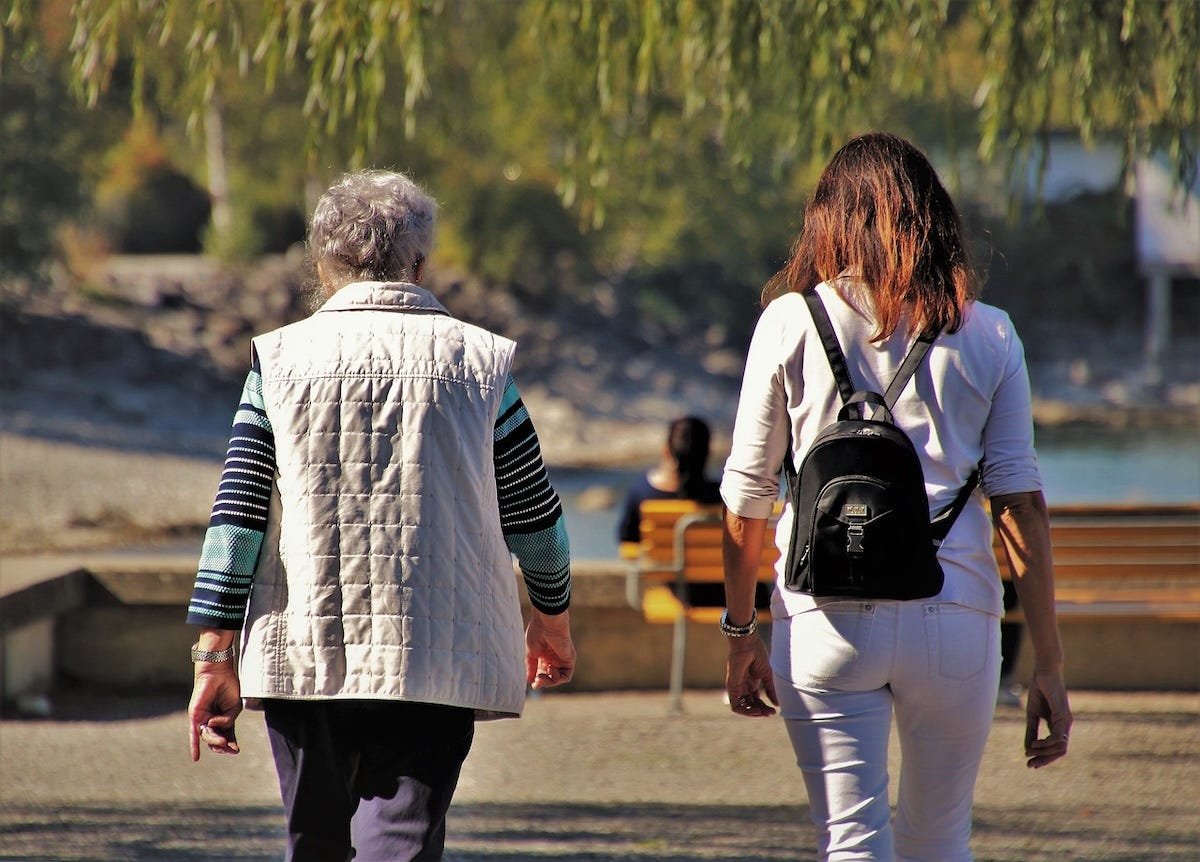The Perks of Intergenerational Friendships
Between good friends, commonalities are more important than differences.
Laura Kaufman, a professional dancer, met Carol, her “bestie,” at a dance class.
It’s not unusual to make new friends when you see the same people week after week. You even have the opportunity to see if they are friend-worthy before you make the leap.
But what was exceptional about this particular friendship was the age difference between the two women: Laura is 32 years old and Carol is 84.
When they first met, you might say that the two friends “clicked.” They recognized that they both shared a passion for dancing and life, and the 52-year age difference instantly faded into the background.
Unfortunately, we all tend to seek out friends who look, act and talk like us. But openness to intergenerational friendships (and other differences) expands the potential pool of possibilities for those seeking new friends.
The beauty of intergenerational friendships
A recent CBS Saturday morning TV segment that shared Laura and Carol’s story reported that 37% of individuals surveyed by AARP had a close friend who was at least 15 years older or 15 years younger.
What accounts for these May-December friendships? Like the one between Laura and Carol, intergenerational friendships can be immensely satisfying.
Our own experience with intergenerational friendships
Sheryl:
I’ve always had friends of all ages, both older and younger than me. (I realize not everyone is open to this; unfortunately I’ve encountered people whose attitude toward anyone older than them is close to condescending. But there is great value to be had in these types of friendships.)
I had a very dear friend for many years until her passing a few years ago. She was the same age as my own mother; yet we had an intense friendship that defied our 25-year age difference. I never felt a gap of years between us: We shared similar interests, had similar sensibilities and enjoyed our times together. I was extremely fortunate to have her in my life, and I know she felt the same. We never discussed our age difference; instead, we silently soaked in how it enriched our bond.
Irene:
One of the most important people in my life was my friend, Rita. I was an awkward 11-year-old when I became a monitor in her kindergarten classroom. Several years later, she became a professor of education at a university. At first, she was a mentor and role model; in later years, I saw her as a friend and the years between us disappeared.
As she blazed her way through the various phases of womanhood, I depended on her wisdom to ease the bumps for me. She passed away several years ago but still remains one of the most influential persons in my life.
What we’ve learned
A younger person can bring energy and new ideas to a friendship so the older person is able to see the world through a different, more refreshing, and perhaps less jaded, set of eyes.
Conversely, older people often have more time for friendships and tend to place more value on their importance. They might even find satisfaction in helping a younger friend in practical ways (e.g., with babysitting or other tasks.)
As mentors, older people bring a wealth of experience to a friendship. Having gone through different stages of life, their experiences may foreshadow the life challenges of a younger person. For instance, an older person can provide insights to a younger friend struggling with a serious illness, career woes, marital conflict or a parenting problem.
We are never too old to get in touch with our younger selves, an unknown author once said so well:
"I asked an elderly woman once what it was like to be old and to know that the majority of her life was now behind her. She told me that she has been the same age her entire life. She said the voice inside of her head had never aged. She has always just been the same girl. Her mother's daughter. She had always wondered when she would grow up and be an old woman.
She said she watched her body age and her faculties dull but the person she is inside never got tired. She never aged. She never changed.
Finding friends
How can you develop intergenerational friendships? Essentially, the same way you nurture any friendship.
An element of “chemistry” is essential: Two people need to find it easy to communicate and be with each other.
But the formation of friendships tend to be organic so there needs to be an opportunity to meet on common ground. It’s always easier to make friends with people who are in the same place, at the same time, doing similar things (e.g. in school, at work, etc.)
Intergenerational friendships blossom when people share interests and/or common experiences. For example, they might be in the same book club, go to the same gym, live in the same neighborhood, or belong to the same civic or hobby group.
If you haven’t “tried on” a May-December female friendship with someone older or younger than yourself, give it a chance. No matter which side of the equation you are on, you’re bound to reap the unique gratifications of these friendships.
Friendship rule:
If you are seeking new friends, be open-minded and don’t limit yourself to your peers




